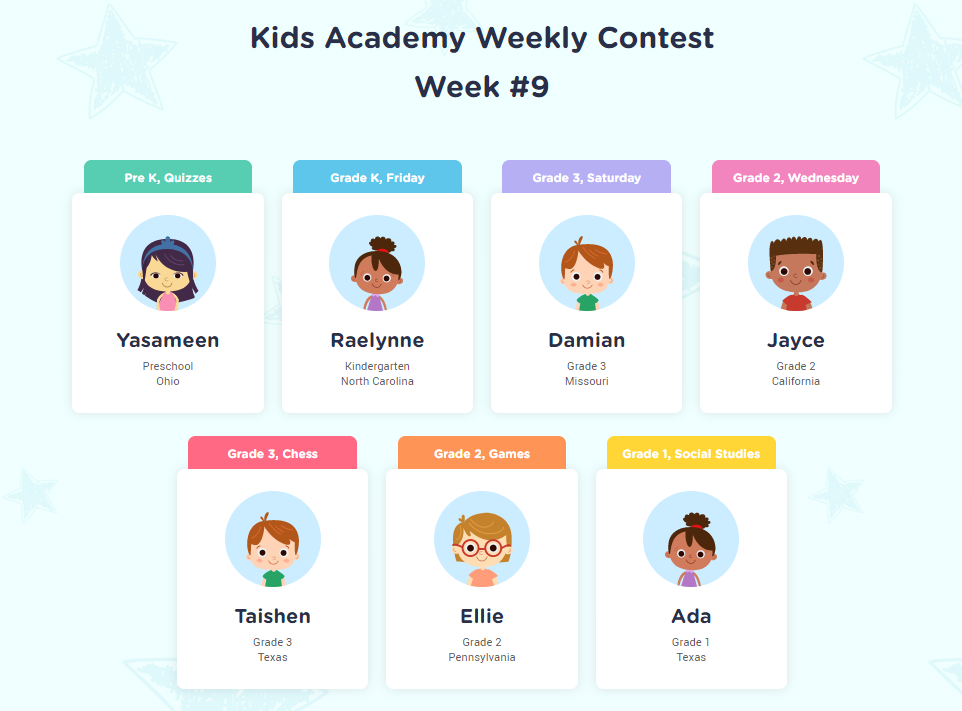6 Ways to Support a Struggling Learner
Aug. 15, 2016

From the time our kids are born, we cheer them on as they reach each milestone, no matter how small it is. We refer to charts, the pediatrician, and the internet to tell us if our children are rolling over on time, or smiling when they’re supposed to. We’re told that sometimes some milestones take longer for kids to accomplish than others, and that there is a wide range of “normal”. And yet sometimes we forget about this when our kids start to struggle with learning reading, writing, or math in preparation for school.
As a parent, it can be difficult to watch your child become frustrated with learning. For many kids, some concepts can be more challenging to master than others, and without the right interventions, kids can shut down and give up. Fortunately, there are many strategies that can help kids master the skills they are struggling with. If your preschooler is having difficulty in reading, writing, or math, try the following:
1. Give your child a break from learning.
It’s easy to disguise learning in games and fun activities that make your child believe that they’re simply having fun. Instead of drilling them with flashcards, take the skill that your child is having difficulty with and sneak it into a fun game or activity.
For example, if your child is struggling with writing their name, go outside and draw pictures with sidewalk chalk. Don’t focus on writing, but when finished, have your child “autograph” the picture they created. If they need help, write out their name and help them trace over it. They’ll be proud of their pictures, and their autograph.

Also available in today’s world is a multitude of quality learning apps for kids that allow your child to practice basic skills while playing games. Research consistently shows that kids learn best through play, and by using apps on a smartphone or tablet, they will practice skills and acquire new concepts without even knowing they’re learning.
3. Let them work at their own pace.
Don’t be too pushy in encouraging your child to master a specific skill. Let your child gain confidence by moving on when they’re ready. There is nothing wrong with repetition and reviewing a difficult concept until your child “gets it”. If your child isn’t ready to move on from counting to addition and subtraction, don’t force it. You can always sneak in simple addition and subtraction into everyday conversation as it comes up in everyday life.
4. Take advantage of free online resources.
Technology today allows us to use resources that were never available in generations past. If your child is having trouble learning the alphabet or writing letters, log online to find alphabet printables.
Find alphabet worksheets, or even free printable letters to use for your child to practice with. Use these worksheets and letters in conjunction with other tools, such as books, to enrich your child’s learning. Whether your child is struggling with letters, numbers, reading, or math, there are sure to be ample online resources available to you for free.

Above all, when your preschooler becomes frustrated, do not become frustrated with them! Help build your child’s self-confidence by being patient with them when they face difficulty. All children will face challenges in learning, and by modeling to your child patience, you will also teach your child to be patient and accepting of themselves.
6. Consistency.
Be firm with your child. Teaching a child when to take a break is important, but do not allow a child to give up entirely. Teach your child that failure and difficulty is normal, and teach them to learn from their mistakes. After taking a break from learning, make sure to encourage your child to try again.
Watching our children struggle is hard to do when all we want to do is step in and save the day. With a bit of strategy, the right tools, and much love, we can ensure that our children will learn the grit and resilience necessary to overcome learning challenges and to excel to their potential.









